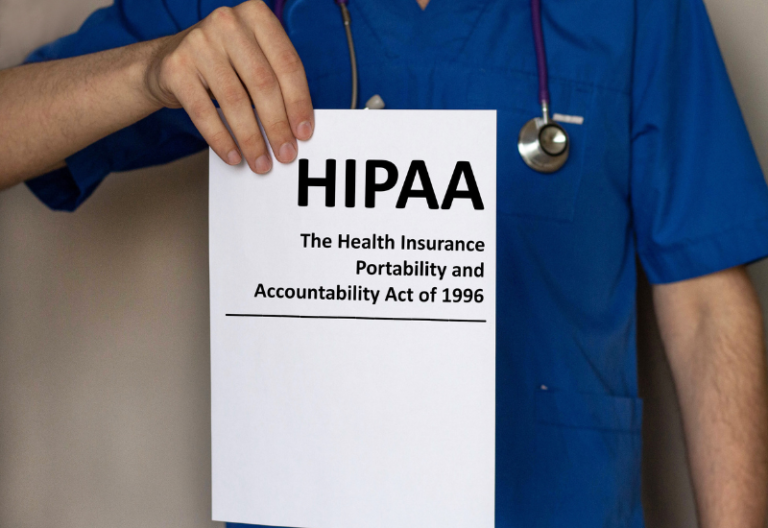June 08, 2023
In a disturbing turn of events, the discovery of hundreds of dumped medical files in two Columbus trash bins shocked the healthcare community. The blatant violation of patient privacy has raised serious concerns about the protection of sensitive personal health information. Dr. Sharona Hoffman, a renowned federal HIPAA expert from Case Western Reserve University, expressed her shock and disapproval, stating, “You can shred them. You can burn them. But, you cannot dump them wholesale for all to see.”
The investigation into this massive HIPAA violation began in March after a concerned citizen alerted a local news station. The tipster reported finding boxes of medical files while recycling his trash. The TV station inspected further and found the alleged medical files trashed in two commercial-sized bins. The said files contained sensitive health information, including names, social security numbers, diagnoses, and prescriptions. The sheer magnitude of this breach is alarming and calls into question the practices and security measures employed by the healthcare provider responsible for the handling and disposal of these confidential PHI documents.
Table of Contents

Violating Patient Privacy: The Disturbing Details of the HIPAA Violation
The medical files dumped in the trash bins belonged to various patients who had sought treatment from a pain management doctor named Khaled Amr. Multiple individuals, including John Marlatt and Julie Workman, identified their own files among the discarded documents. These patients expressed their distress and concern about the exposure of their personal information, which could have severe consequences.
Adding to the gravity of the situation, Marlatt and Workman revealed that they had both been patients of Dr. Amr in the past. The pain management doctor was later indicted and convicted of drug trafficking, theft, and insurance fraud in 2019. The dumping of their medical files, which contained sensitive details about their health conditions and treatment history, has left them feeling violated and vulnerable.
Khaled Amr had ties to Columbus Medical Center, Columbus Addiction Center, Columbus Pain Specialists, and Columbus Addiction Specialists prior to his conviction. All of these clinics have since been closed.
Amr’s attorney said the medical files were kept at Public Storage, a nearby storage facility. While trying to get to the root of the mystery, the news station, ABC6 On Your Side Problem Solvers, attempted to contact the corporate office of the said storage facility but were unable to find answers. At this point in the investigation, it’s unclear how the files ended up in two trash bins and who is directly at fault.

Consequences of the Breach: Potential Impact on Patients’ Lives
The ramifications of this violation of HIPAA patient privacy cannot be understated. The compromised information, including diagnoses and treatment history, can be exploited by malicious actors for various purposes. Dr. Hoffman explained, “If someone knows your diagnoses, they could use that to blackmail you.” Patients could face discrimination from insurers or be denied services due to the revealed information. The potential consequences extend beyond privacy concerns and could significantly impact the lives of the affected patients, including their careers and overall well-being.

Expert Analysis: Clear Violation of HIPAA and Potential Legal Consequences
As an expert in healthcare privacy law, Dr. Hoffman asserted that the dumping of medical files constitutes a blatant violation of HIPAA regulations. She emphasized that such violations can result in significant financial penalties, potentially amounting to millions of dollars. In this case, both the healthcare provider and any involved third parties, such as the storage facility, could be held accountable for their roles in the patient record breach.
Dr. Hoffman further noted that pursuing a federal or state investigation in this particular case may be challenging. Despite the severity of the violation, Khaled Amr surrendered his medical license and remains on probation, which might deter government agencies from taking action. However, affected patients do have the option to file civil lawsuits if they can prove that their information was stolen and misused as a result of the incident. Nevertheless, pursuing legal action presents a difficult uphill battle for these patients, as federal law currently prohibits private patients from filing civil lawsuits for HIPAA violations.
Addressing the Fallout of a Massive HIPAA Breach
The discovery of hundreds of dumped medical files in Columbus has raised serious concerns about patient privacy and the effectiveness of HIPAA safeguards. The violation committed by Khaled Amr and the negligence of the storage facility has exposed sensitive information, jeopardizing the lives and well-being of numerous patients.
While the legal consequences and investigations may face obstacles, the affected individuals can rightfully demand justice and accountability. This incident serves as a stark reminder of the critical need for robust security measures and strict adherence to HIPAA regulations to protect patients and prevent such egregious breaches from occurring in the future.







